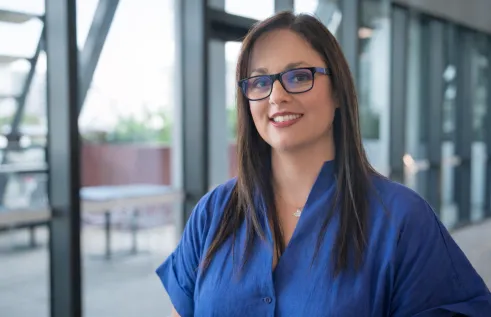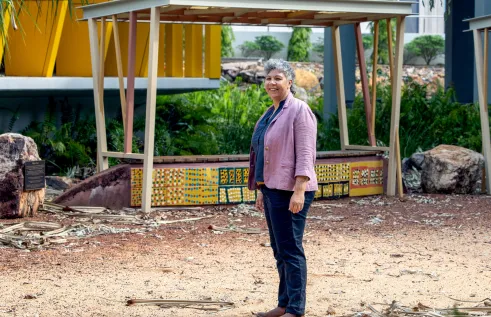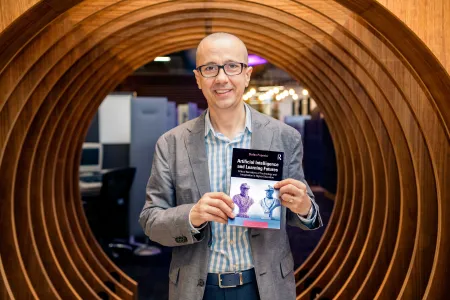News
New book highlights how AI is putting education at risk
The rising use of Artificial Intelligence (AI) by students has sparked a crisis threatening the integrity of education, according to a Charles Darwin University (CDU) expert’s new book.
CDU AI expert Dr Stefan Popenici’s book, Artificial Intelligence and Learning Futures: Critical Narratives of Technology and Imagination in Higher Education, examines the risks of AI in education and curriculum design, a growing issue he has described as a global “crisis”.
Published by Routledge the book delves into the ideological history of AI development, the dehumanizing impact of AI on universities, teachers, and students, and how providers must rethink how they can constructively use this technology.
Dr Popenici revealed he faced criticism in the early stages of his book with his concerns of the impact of AI on education dismissed but recent events such as the use of AI program ChatGPT to write university assessments reinforced the need to reassess the role of AI in education and how we think about education in general.
“It’s globalised. It’s not a limited phenomenon affecting universities in Australia or the Anglo-Saxon world. It’s happening everywhere, in different languages and cultural spaces,” Dr Popenici said.
Dr Popenici identified a growing lack of interest in learning, originality and creativity among students as one of the most significant tragedies spurred by AI.
“AI is going to be an integral part of our lives so we must rethink our education,” Dr Popenici said.
“We should be very concerned things created by AI pass as a valid assessment. Our assessments are so dumbed down and stereotypical a student can pass with no problems, using an engine which is not able to associate meaning with words and information picked up from Internet.
“We should look at how we can go back to our humanity and how it’s possible to use this technology for the advancement of higher learning.
“We have to see how it is possible to use AI for our benefit rather than using it for our own destruction.”
The book Artificial Intelligence and Learning Futures: Critical Narratives of Technology and Imagination in Higher Education is available from Routledge.
Related Articles

CDU solidifies presence in South Australia with Associate Vice-Chancellor Adelaide appointment
Charles Darwin University (CDU) is pleased to announce the appointment of Professor Lisa Papatraianou as the new Associate Vice-Chancellor Adelaide.
Read more about CDU solidifies presence in South Australia with Associate Vice-Chancellor Adelaide appointment
New education hub launches to train more First Nations teachers
Charles Darwin University (CDU) has officially launched the First Nations Training and Teacher Education Hub, a collaborative initiative designed to grow the next generation of First Nations teachers, educators, and leaders across the Northern Territory.
Read more about New education hub launches to train more First Nations teachers
Building a legacy: CDU’s Vice-Chancellor renews contract for five years
Charles Darwin University (CDU) Vice-Chancellor and President Professor Scott Bowman will continue as the institution’s leader for the next five years.
Read more about Building a legacy: CDU’s Vice-Chancellor renews contract for five years
